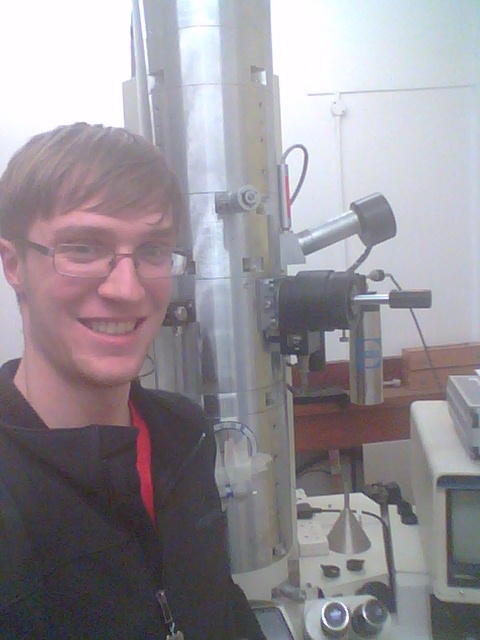Bennett McIntosh ’16: Research Abroad at the University of Sussex, Spring 2015
How did you discover and attain this research opportunity?
The summer after my sophomore year I was accepted, through Princeton’s International Internship Program, to a summer position with the Czech Academy of the Sciences in Nové Hrady, Czech Republic. The computational biochemistry lab I worked in was attached to a conference center, where I met a number of protein scientists from around Europe. I was already interested in studying abroad during my Junior spring, so I was honored and thrilled when one of the scientists I met there introduced me over email to Professor Serpell, my supervisor here. Professor Serpell and I soon began planning a project here, which would serve as my spring Junior Independent Work, and meanwhile I sought approval for the travel and the classes I would take out here from both Princeton and the host institution.
When and where was your research experience?
My research took place in the Serpell lab, here at the University of Sussex in Brighton, England. It will encompass the entirety of my spring term, from January through May 2015.
What was your research project?
The proteins which cause Alzheimer’s disease, prion diseases like Mad Cow and Parkinson’s disease, do so by mis-folding in a way that encourages other such proteins to misfold and stick together, eventually building up fibrous plaques. We study very short proteins which assemble together in the same way. The aim of my project is to produce and characterize such a protein which is catalytic–that is, it encourages the decomposition of our reporter molecule. My work here is a combination of kinetic studies–using spectroscopy to measure how quickly the reaction takes place–and structural studies with tools such as x-ray diffraction and transmission electron microscopy.

What were the highlights?
In the lab, my favorite part is probably the tunneling electron microscope–I stain samples with uranium, then shoot high-energy electron beams through them in order to see at a higher resolution than light microscopes can manage.
But the numerous techniques and deep theoretical knowledge I’ve gained are only the beginning. The members of the lab are from four or five different countries, so I’m doing truly international science, and learning so much from people of entirely different cultures. Brighton is a beautiful town with great culture, and close enough to Gatwick airport that I’ve been able to take weekend trips around the UK and Western Europe.
What did you take away from this experience?
My thesis is going to incorporate some of the techniques and concepts I’ve learned here, and I imagine much of my future research career will be indelibly shaped by the international experience I’ve had. The science that I’m doing here is wonderful, but even better is the chance to do meaningful work in a totally different place. It’s sometimes trying to work with scientists with totally different backgrounds than me, but we learn so much from each other that it’s absolutely worth it.
